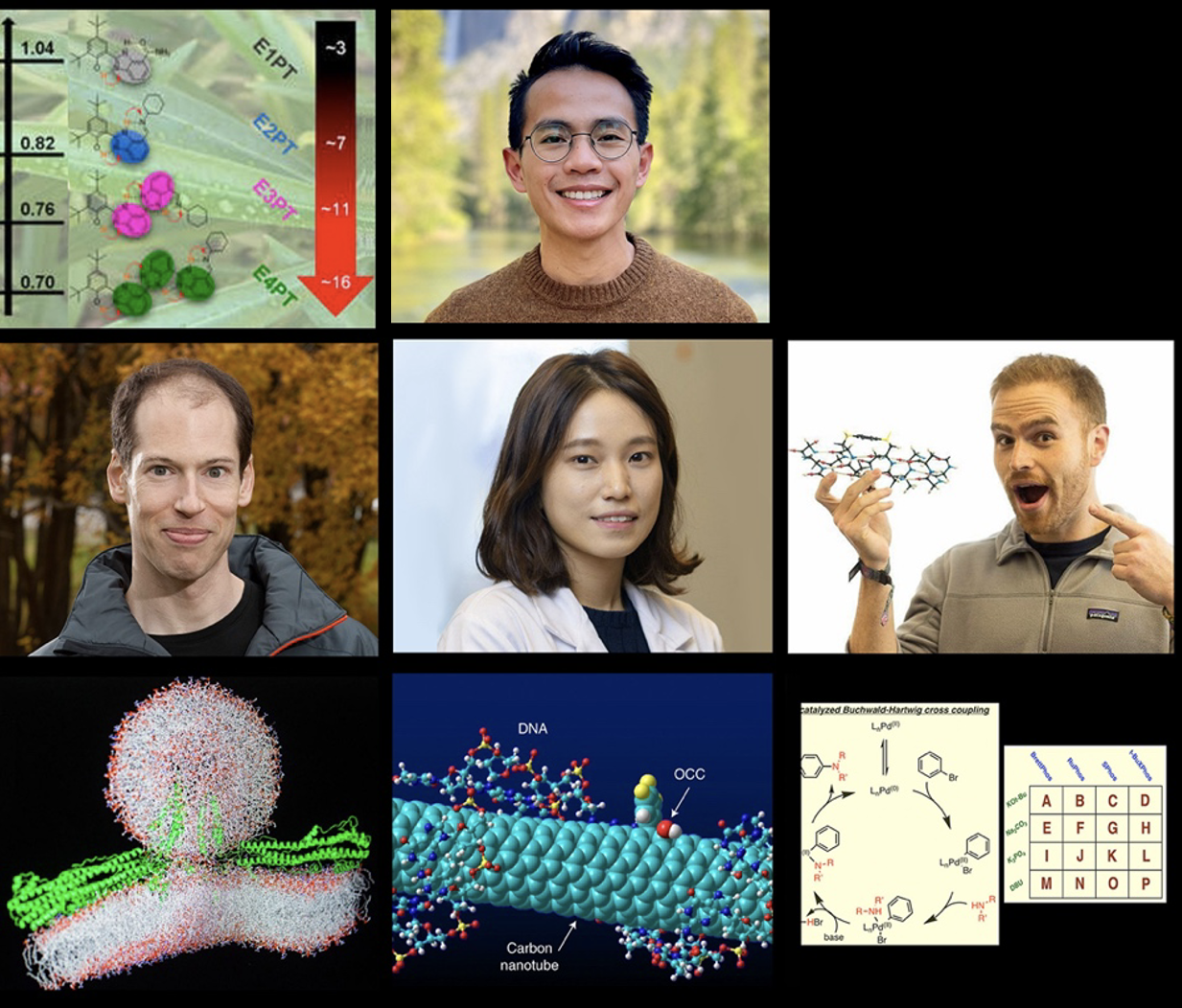
The School of Chemistry and Biochemistry is delighted to welcome four new faculty members in 2023 – 2024.
Dr. Mioy Huynh, Visiting Assistant Professor in the W.M. Keck Science Department of Claremont McKenna, Pitzer, and Scripps Colleges, will come to Georgia Tech in the Fall, 2023, as Academic Professional. Dr. Huynh received his Ph.D. in Chemistry in 2017 as a NSF Graduate Research Fellow at the University of Illinois at Urbana-Champaign with Prof. Sharon Hammes-Schiffer. There he also started his professional career in chemistry education by Lecturer and Summer Instructor at UIUC. After postdoctoral research at Boston University and the University of Wisconsin, he assumed Lecturer positions in general and physical chemistry at Yale University, UCLA, and Claremont Colleges. Dr. Huynh was a first-generation college student and he is particularly excited to meet and work with first-gen students here at Georgia Tech. He will also work with other faculty to implement active-learning strategies in the classroom and developing video content to support in-class learning. An example of his exciting Ph.D. research can be found here
Prof. Peter Kasson is currently Associate Professor with Tenure in the Department of Molecular Physiology and Biological Physics and the Department of Biomedical Engineering at the University of Virginia. He also is a Wallenberg Fellow and Associate Professor in the Program in Molecular Biophysics at Uppsala University, Sweden. He will relocate to Atlanta in December, 2023, as Professor of Chemistry and Biochemistry with a joint appointment in the Coulter Department of Biomedical Engineering at Georgia Tech and Emory University.
Dr. Kasson is an international leader in the study of biolgoical membrane structure, dynamics, and fusion, with particular application to how viruses gain entry to cells. His group performs both high-level experimental and computational work – a powerful combination that is critical to advancing our understanding of this important problem. His publications describe inventive approaches to the measurement of viral fusion rates and characterization of fusion mechanisms, and to the modeling of large-scale biomolecular and lipid assemblies. He has applied these insights to the prediction of pandemic outbreaks and drug resistance, with particular attention to Zika, SARS-CoV-2, and influenza pathogens in recent years. See https://kassonlab.org/ for more information.
Dr. Mijin Kim is a Kravis WiSE Postdoctoral Fellow in the Molecular Pharmacology Program at Memorial Sloan Kettering Cancer Center, and we are very excited to welcome her to Georgia Tech in October, 2023. She earned her Ph.D. degree at the University of Maryland on quantum defects in fluorescent materials and made a bold leap to the world of biological science in her selection of postdoctoral training at Sloan Kettering beginning in 2018. There she has combined these fields to pioneer an exciting platform for carbon nanotube-based optical sensors of cancer in vivo. Supported by an NIH K99/R00 Pathway to Independence award, she will further develop this and related information-rich probes of complex biological systems. More information about Dr. Kim can be found here.
Dr. Anthony Rojas, currently Clinical Assistant Professor of Chemistry at Kennsaw State University, will begin his Georgia Tech career in the Fall of 2023. He is a Georgia Tech undergrad (2014), where he worked with Prof. Seth Marder on synthesis and properties of photoactive polymeric materials. Dr. Rojas earned his Ph.D. degree from MIT as an NSF Graduate Research Fellow in 2018, under the direction of Profs. Steve Buchwald and Brad Pentelute, on palladium-mediated bioconjugation reactions. There he was awarded the Dow Chemical Fellowship and Wolf Fellowship from MIT’s School of Science. In 2018, he joined Salisbury University as Assistant Professor and moved to Kennesaw State in 2021. Dr. Rojas’s goal is to revolutionize the way undergraduate chemistry is taught and to showcase the magic of science to a diverse audience. You can see an example of his development of creative instructional laboratory experiments here.